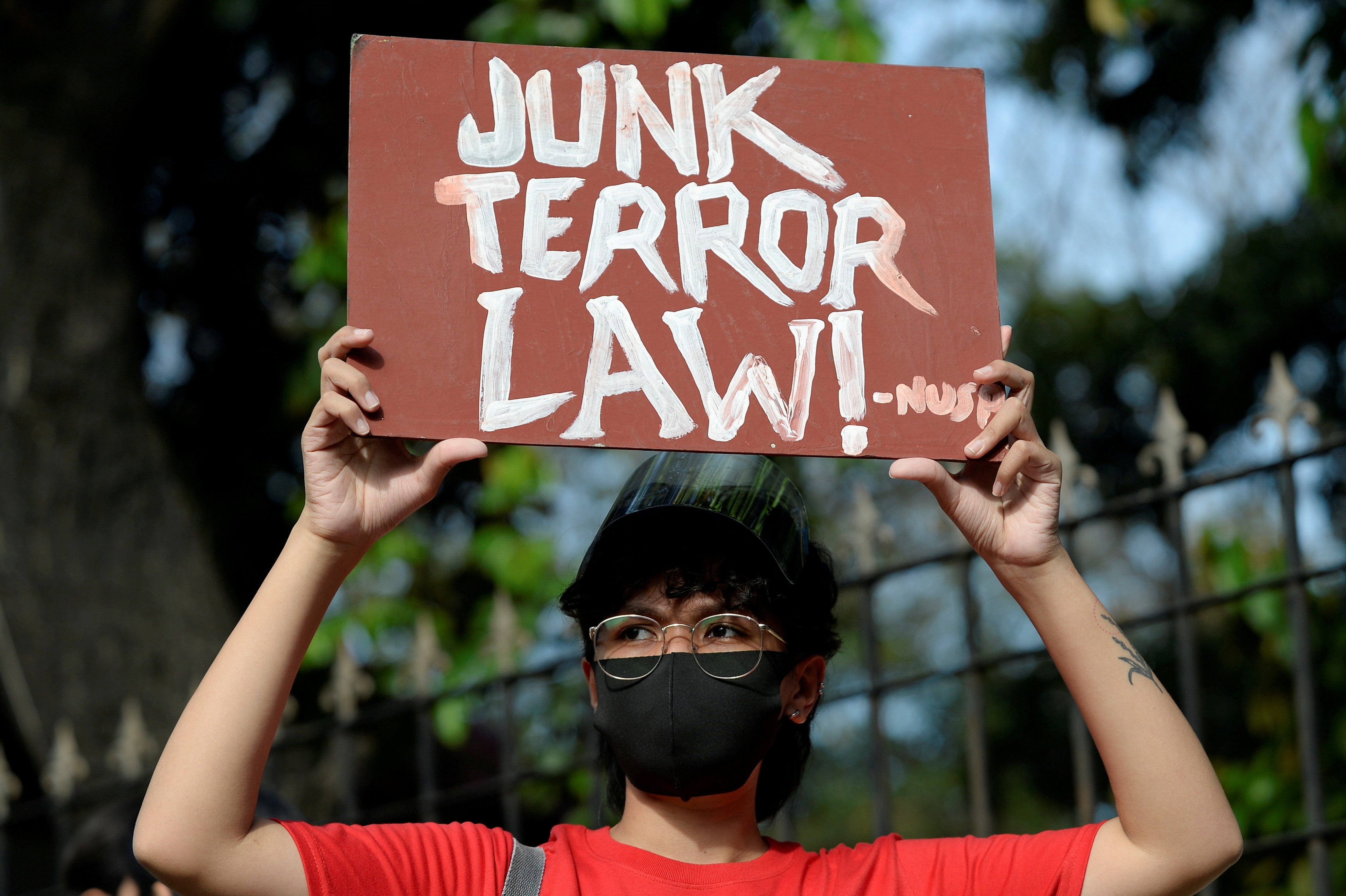Philippines’ Supreme Court says parts of anti-terrorism law unconstitutional
At least 37 petitions have been filed challenging the constitutional validity of the legislation

Your support helps us to tell the story
From reproductive rights to climate change to Big Tech, The Independent is on the ground when the story is developing. Whether it's investigating the financials of Elon Musk's pro-Trump PAC or producing our latest documentary, 'The A Word', which shines a light on the American women fighting for reproductive rights, we know how important it is to parse out the facts from the messaging.
At such a critical moment in US history, we need reporters on the ground. Your donation allows us to keep sending journalists to speak to both sides of the story.
The Independent is trusted by Americans across the entire political spectrum. And unlike many other quality news outlets, we choose not to lock Americans out of our reporting and analysis with paywalls. We believe quality journalism should be available to everyone, paid for by those who can afford it.
Your support makes all the difference.The top court in the Philippines struck down two parts of the contentious Anti-Terrorism Law on Thursday, disappointing activists who sought scrapping of the entire legislation.
The court in a statement said that the part was struck down "for being over-broad and violative of freedom of expression."
A provision of the law, that allows an anti-terrorism council appointed by the president to adopt requests by other entities to designate individuals and groups as terrorists, was also declared unconstitutional by a vote of 9-6.
The ruling comes as a blow to activists and human rights groups who have been challenging the legislation, fearing abuse of law to strife dissent.
President Rodrigo Duterte signed the legislation in July 2020, replacing the Human Security Act of 2007. The new law has been criticised for its sweeping provisions that activists say threaten civil liberties.
Under the law, suspected terrorists can be detained for up to 24 days without charges and surveillance of suspected terrorists can continue up to 90 days.
Defending the legislature, Mr Duterte had earlier claimed that law-abiding citizens have nothing to fear. “For the law-abiding citizen of this country, I am addressing you with all sincerity, do not be afraid if you are not a terrorist,” he said in a televised national address.
At least 37 petitions have been filed challenging the constitutional validity of the legislature, making it the most contentious law in the country.
Lawmaker Edcel Lagman, who was one of the petitioners, said that allowing detention of a suspect for up to 24 days without a warrant was a "blatant violation of the constitution".
Following the verdict, Akbayan, a group of activists and legislators, told Reuters that the court missed the opportunity to "defend the Filipino people's human rights and democracy".
"You don't defeat terrorism by terrorising the people and stifling their rights. The answer to non-state terrorism is not state terrorism," it stated.
Hermogenes Esperon, the vice-chairman of the anti-terrorism council, said the government would respect the court's decision.
Join our commenting forum
Join thought-provoking conversations, follow other Independent readers and see their replies
Comments